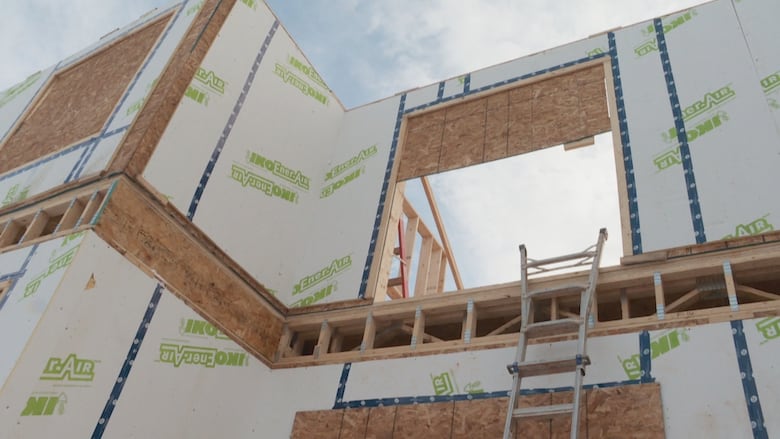Developers want meeting with Myers before he signs off on Charlottetown's official plan
'It's really unfortunate that they can't see the big picture,' says Tim Banks

Some developers say Charlottetown's newly adopted official plan will make it more difficult for them to build in the city's downtown core.
Last week, council approved a long-awaited update to the plan. Among other things, the document dictates how land can be used in the city. The last time the official plan was updated was back in 1999.
Tim Banks, CEO of the construction and property development company APM MacLean, said he has several concerns with the plan.
P.E.I. Housing, Land and Communities Minister Steven Myers has to approve Charlottetown's new official plan. Banks said he wants to meet with Myers before he signs off on it.
"I see a lot of opportunity, but that opportunity is being shut out by a restrictive set of bylaws and a restricted official plan," Banks said.
"The previous official plan talked about economic prosperity and growth and higher density in the downtown core. This new official plan that they're putting forward is tightening up the restrictions. They don't even talk about growth."
The city is trying to balance development with preserving historic neighborhoods, mainly the historic 500-lot area that stretches from Euston Street down to the waterfront.

Banks said one of his buildings in the 500 lots took roughly five years to develop because of the city's demands. He said it could have been built in less than two years.
"It's really unfortunate that they can't see the big picture," Banks said.
'We have to go up'
Banks said he wants the city to allow taller buildings in order to prioritize what matters to this generation.
"We live on a little island and if you want to grow — and we need to grow to keep our economy and to deal with the health and service costs we're dealing with — so we have to go up," he said.
Charlottetown is currently gathering feedback on amendments to its zoning and development bylaws.
According to a city survey, 72 per cent of respondents were in favour of more housing. Secondary dwellings were the most preferred form of housing, with apartments with four-unit buildings being less favourable.
But Banks said secondary dwellings, also known as garden suites or accessory dwelling units, don't make sense for the 500-lot area of Charlottetown.
"They're very small lots and there's no opportunity to put garden suites in them," he said. "Density is in heights and density is being able to live with a reasonable set of rules to allow developers and investors to move forward."
In a statement, Charlottetown Deputy Mayor Alanna Jankov said long-term development is about balancing the city's growth and preserving the character of the city, specifically in terms of heritage preservation in the downtown core.
"We recognize the need for greater density and more diverse housing options in our city centre. Building a vibrant downtown — where people can live, work, and access essential services — is a key objective of our newly adopted Official Plan," the statement reads.
The statement added that city officials will be speaking with developers as they review the zoning and development bylaws.
A spokesperson for the Department of Housing, Land and Communities confirmed that the devlopers had co-ordinated a meeting and that Myers plans to attend to hear their concerns.
With files from Tony Davis

